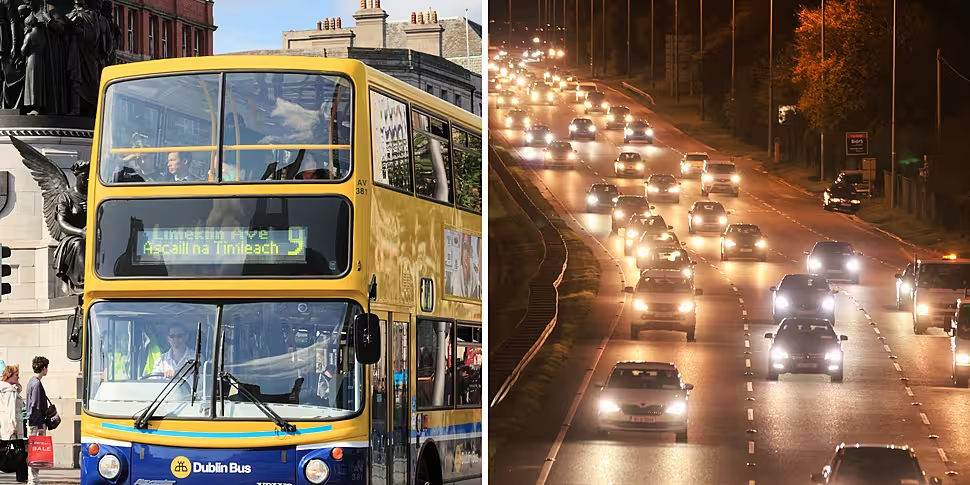More than 60% of people would give up their car in exchange for 'reliable and frequent' public transport, according to a new Newstalk poll.
The first in a new series of polls carried out by Amárach Research for Newstalk also finds that the vast majority of people in Ireland want the Government to cancel the upcoming increases in petrol and diesel excise duty.
Despite that finding, nearly eight-in-ten people want to see more road upgrades and 60% want more motorways.
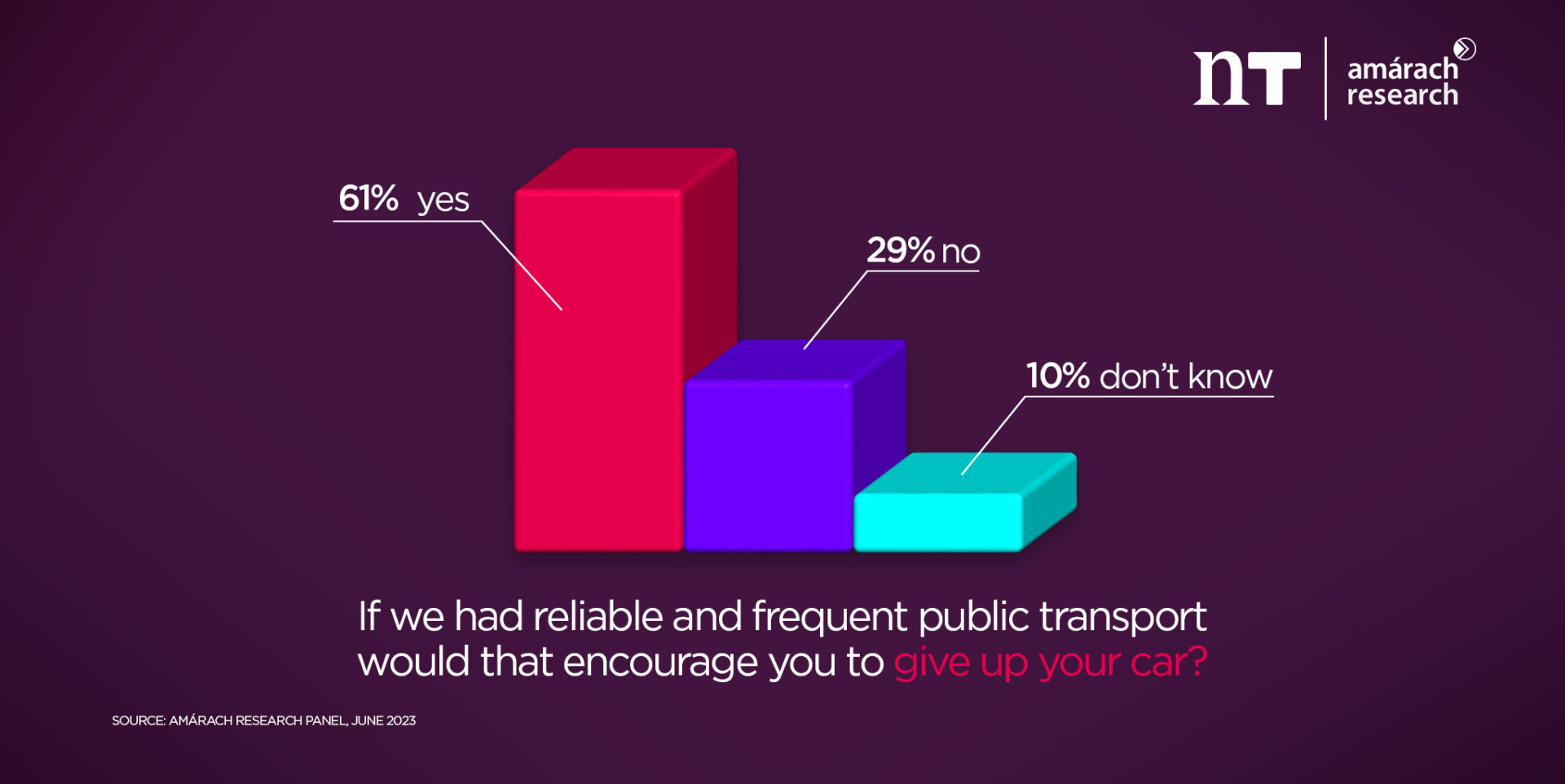 Newstalk Transport Survey | Public Transport
Newstalk Transport Survey | Public TransportOn public transport, the survey suggests that people are more interested in ‘reliable and frequent’ public transport than they are in making public transport free.
Some 61% of people said they would give up their car in exchange for 'reliable and frequent' public transport - a figure that rises to nearly seven-in-10 in Dublin.
Meanwhile, just 41% of people said they would give up their car if public transport was free.
The poll, unveiled on The Hard Shoulder this afternoon, also found that nearly one-third of people believe that Ireland has become ‘anti-car’.
Fuel excise increases
The Government originally cut taxes on petrol and diesel in March 2022, with fuel prices skyrocketing in the face of the Russian invasion of Ukraine.
Those cuts are now being reversed in three phases. The first already took place at the end of May, with the price of petrol increasing by 6c and diesel increasing by 5c.
Two more increases are planned this year - on September 1st and October 31st - with all three combined expected to add €10 to the cost of filling an average tank.
The Newstalk survey found that 72% of people do not want the next two increases to happen, with women (75%) more likely than men (69%) to be against the plan.
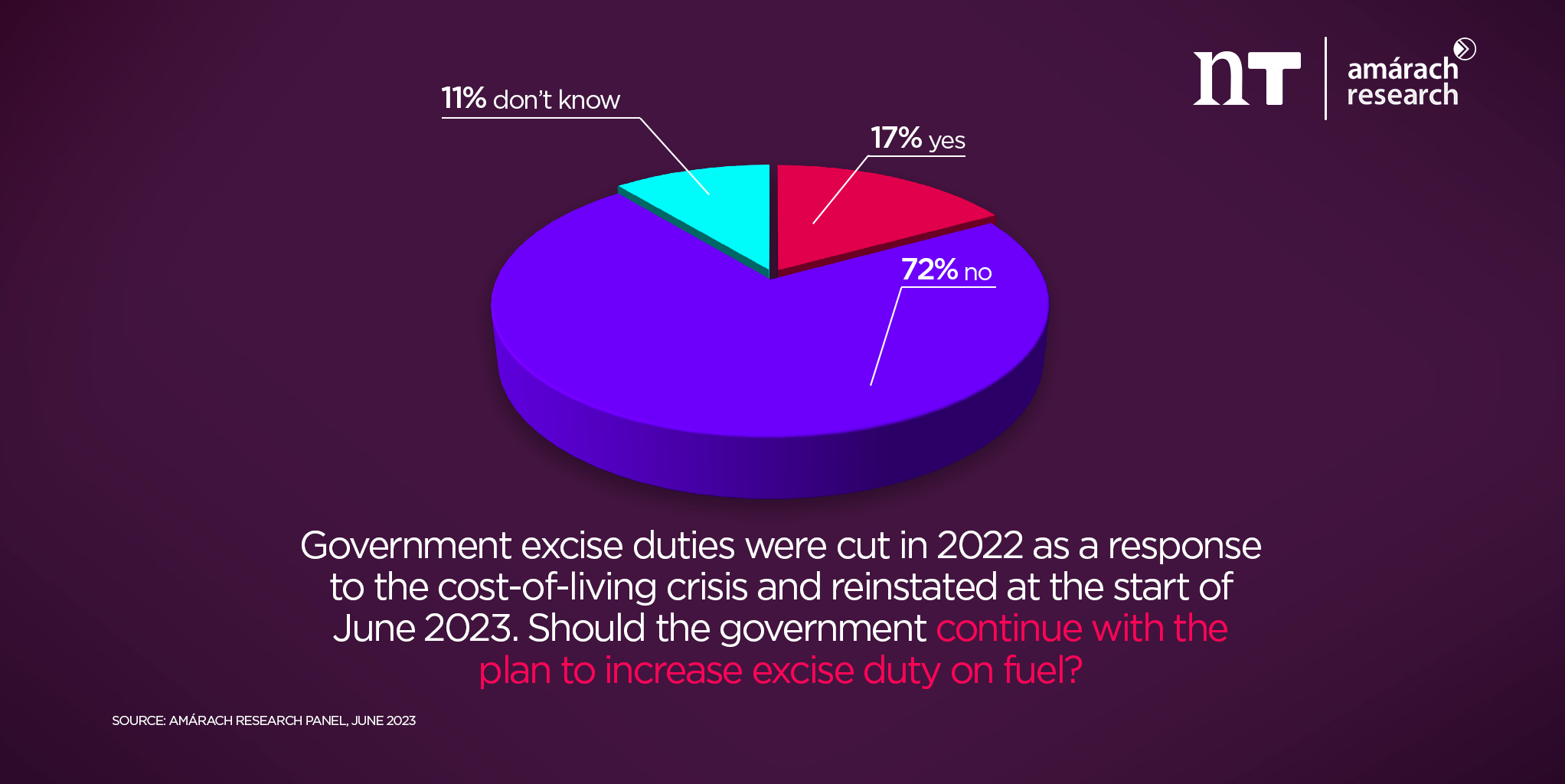 Newstalk Transport Survey | Excise Increases
Newstalk Transport Survey | Excise IncreasesPeople living in Dublin were more likely to be in favour of the excise increases, with 22% of people in the capital backing them compared to just 15% in rural Ireland.
The survey also found that 60% of people want to see the Government investing in more motorways and 78% disagree with proposals to pause investment in road upgrades.
Men were far more likely (66%) to want to see more motorways built than women (55%), with men also more likely (81%) to oppose plans to pause investment in road upgrades than women (76%).
Free public transport
On public transport, bus services were the number one priority for investment for the majority of people, followed by rail and the MetroLink.
Just 7% of people wanted to see investment in Luas services prioritised, while just 6% chose cycling infrastructure as their priority.
People living in rural Ireland were most likely to choose rail services as their priority (37%), while people in Dublin were most interested in bus services (35%) and the MetroLink (35%).
The only age group that did not choose bus services as their priority was the 35 – 44 age group, with 39% of them choosing rail services as their priority.
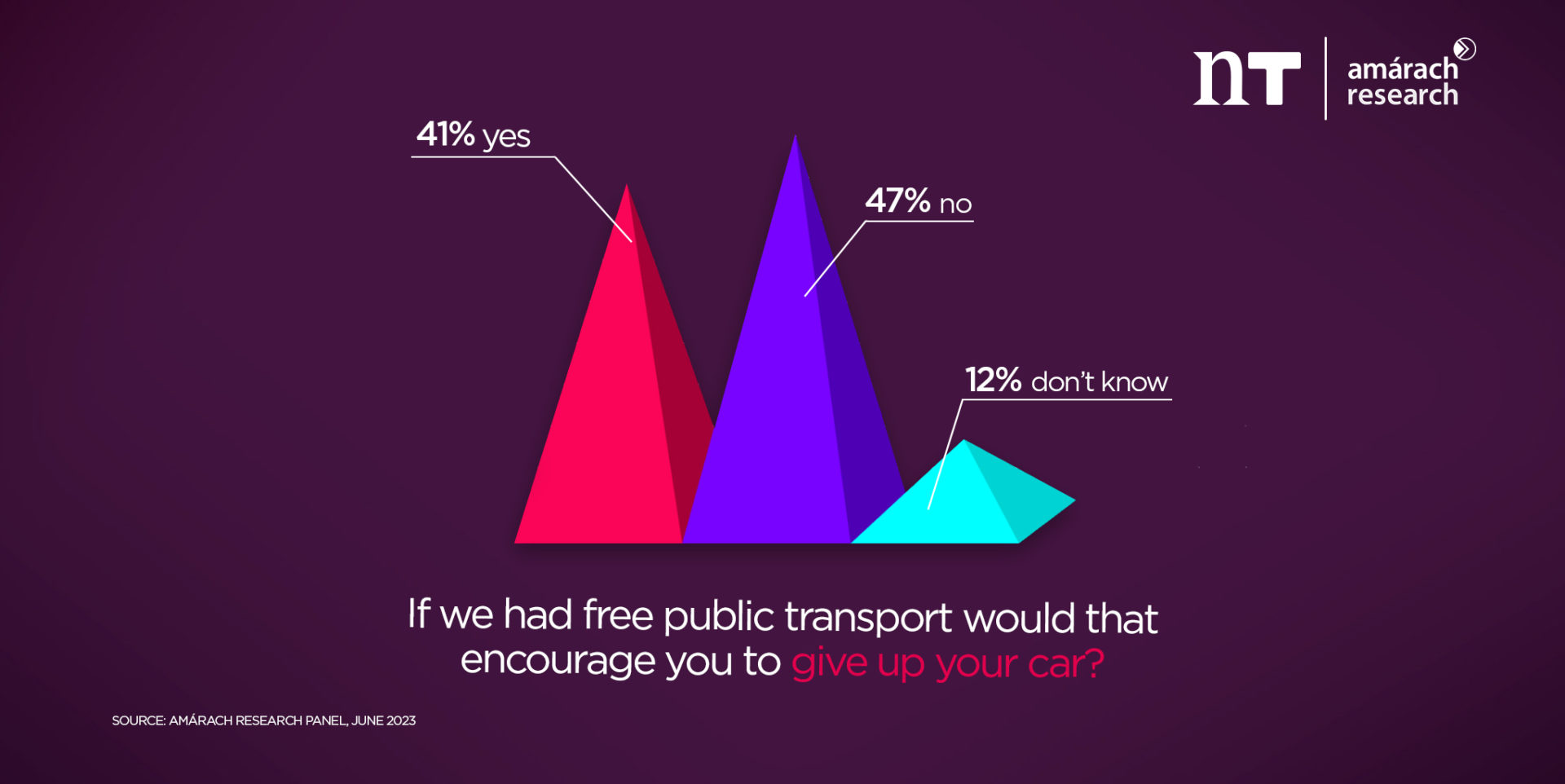 Newstalk Transport Survey | free Public Transport
Newstalk Transport Survey | free Public TransportWhile six-in10 said they would give it up if public transport was 'reliable and frequent', just 41% said they would do so if public transport was free.
Speaking to reporter Josh Crosbie for The Hard Shoulder, Dublin Commuter Coalition Chair Feljin Jose said improving public transport and getting people out of their cars is a two-way street.
“It’s worth bearing in mind that prioritizing public transport in cities would result in restrictions for cars,” he said. “That’s the only way to do it.
“We have a finite amount of space in cities. The only way to make sure buses get through Dublin city centre quickly is to allocate spaces to buses.
“That will mean restrictions on cars and that will mean, in a way, people being nudged to take public transport because that space has to come from somewhere.”
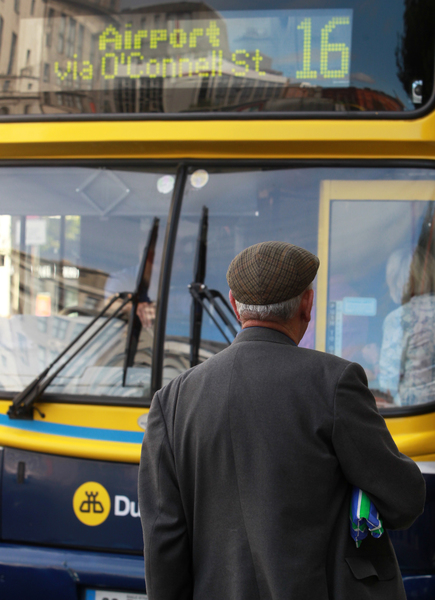 A man waits at a bus stop in Dublin City Centre. Image: Sam Boal/Photocall Ireland
A man waits at a bus stop in Dublin City Centre. Image: Sam Boal/Photocall IrelandMen were more likely (65%) to be ready to give up their car for reliable public transport than women (58%).
Some 67% of people in urban areas said they would give up driving in return for reliable public transport compared to 58% in rural areas.
In Dublin, 50% of people would give it up for free public transport, compared to just 37% in rural areas.
Anti-car Ireland?
Interestingly, young people were most likely to believe Ireland has become ‘anti-car’.
In all, 30% of people agreed that Ireland was anti-car and 55% disagreed.
People under the age of 35 were most likely to agree (32%) that Ireland is anti-car, with the next age group up (35–44-year-olds) least likely (27%).
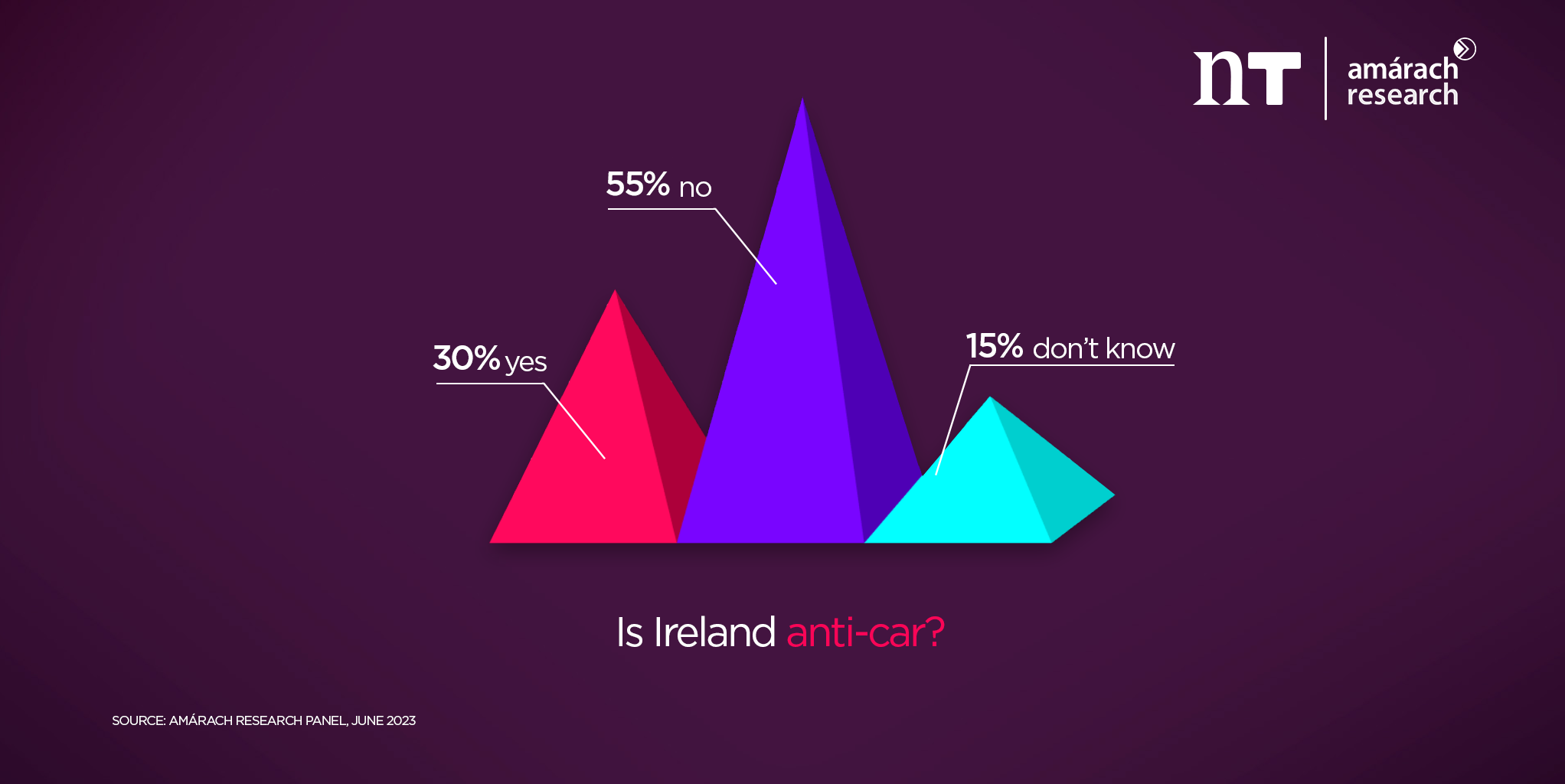 Newstalk Transport Survey | Anti-Car Ireland
Newstalk Transport Survey | Anti-Car IrelandMr Jose said Ireland has been very pro-car for a long time.
“We have invested in roads, almost exclusively, for the best part of 40 years,” he said.
“We have completely neglected our rail network, our buses, our rural buses – a lot of people lost their buses and rail lines were closed down.
“That is not a country that is anti-car. That is a country that is very much pro-car and prioritising motorways, dual carriageways and investment in private transport over public transport.”
The poll also found that 61% would be more likely to buy an electric car if the cost of running an EV was reduced substantially.
Meanwhile, some 35% of people Ireland should scrap the NCT – with 565 believing it should remain and 10% saying they don’t know.
The poll was carried out among 1,201 Irish adults all over Ireland – some 83% of whom solely or jointly own a car.
If you would like to have your view heard in future polls, sign up for the Newstalk Amárach Research Panel here.


